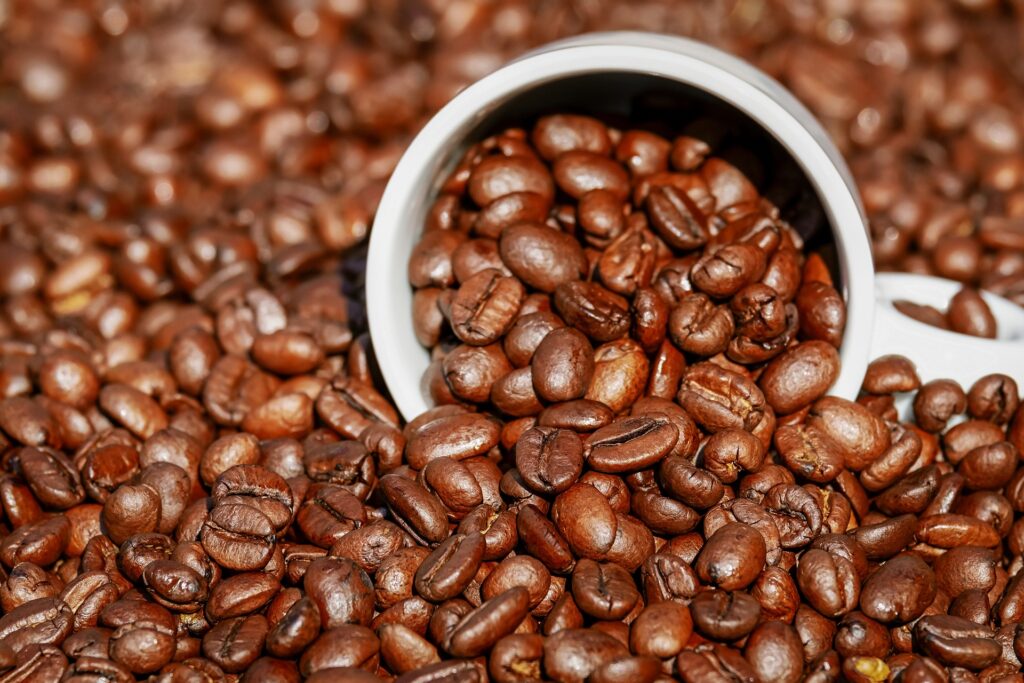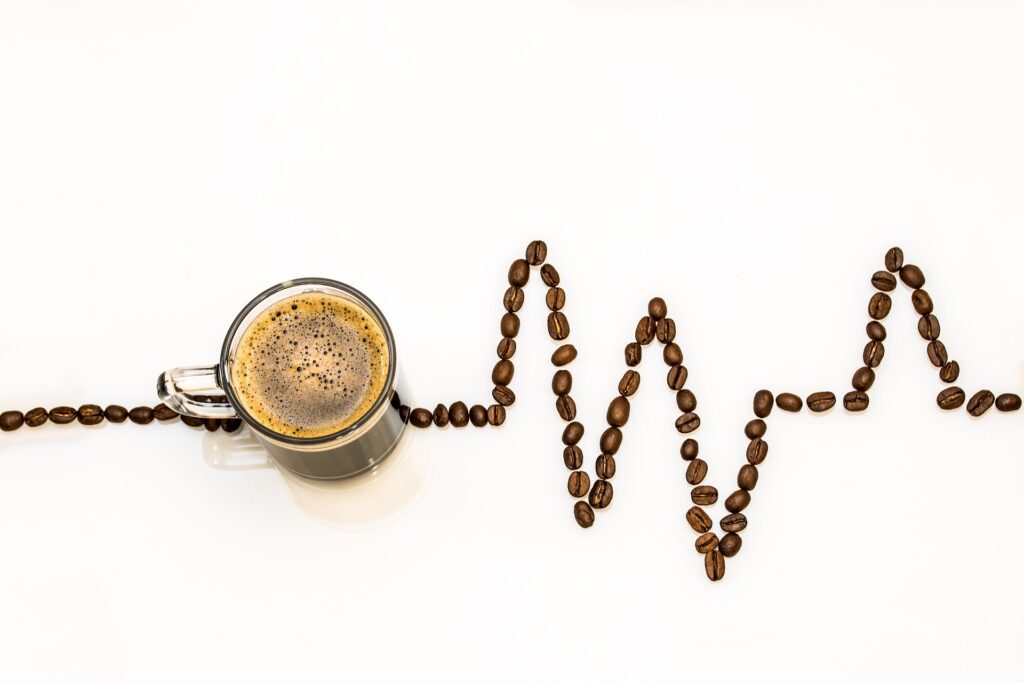For millions worldwide, coffee is the beloved beverage to start the day right. But guess what? You can actually feel good about your need for a cup of Java. We now understand that coffee can be beneficial for health. Learn how coffee helps you live longer and about other surprising benefits.
Ah, a delicious cup of perfectly brewed coffee is a necessary element of life for most adults. Whether you depend on a morning cup to get things rolling or your habit continues with several coffee breaks throughout the day, there’s no denying that coffee is important. In fact, 30-40% of the world population has at least one cup of coffee each day. That amounts to a whopping 103 million tons of coffee that was consumed in 2021 – it’s probably more by now!
Contrary to popular belief that coffee drinkers turn to coffee for the caffeine kick, most say that they actually prefer coffee for the taste, not for the energy boost. But even more importantly, coffee drinkers enjoy quite a few health benefits from drinking coffee, even if they’re not aware of it.
Who Discovered Coffee? (the Short Version)
Although there are a few different legends surrounding the discovery of coffee as a nourishing beverage, the first coffee use can be pinpointed to Ethiopia’s Kaffa region, around 850 BC. We can all give thanks to a local goatherd named Kaldi, who was paying attention while tending his herd one day. He noticed that after consuming some berries from a low-hanging bush, the goats became energized.
Kaldi was so intrigued and entertained by their antics that he decided to try the berries and experienced the same intoxicating buzz. Due to its exhilarating quality and unique flavor, coffee made its way from Ethiopia to Yemen via local traders and smuggling (at that time there was no coffee bean cultivation).
By the 1700s, the Dutch began cultivating coffee in Sri Lanka, and coffee spread to Europe. Coffee cultivation circulated from Europe via a pilfered coffee seedling taken from France to Martinique. From there, coffee growing moved onward to the Caribbean and to Central and South America.
Regardless of the circuitous routes coffee took to make its way into our lives, there’s no question that coffee, in all its varied presentations, is a major societal glue in most world cultures.
Is Coffee Good For Health?
Surprisingly, the answer is yes. Of course, as with any natural herb or plant substance, coffee beans have health benefits, but there are certain caveats. For example, if you don’t go overboard and abuse your coffee usage, you can reap the rewards of savoring a cup of coffee… or two…

Ayurveda, the traditional natural healing system of India, advises that coffee can be better for some body types than others. According to the Ayurvedic blueprint for health, body types, or doshas, determine what foods we should consume for maximum health.
If you are a Vata type, you tend to move quickly, learn quickly (but forget just as quickly), are slim, and have dryer skin and hair. For better health, you should limit your coffee to one cup per day. You should drink your coffee before 10 am and add cream and sweetener to mellow out the effects of caffeine because Vata types already run a bit fast.
If you are a Pitta type, you run hot, both physically and temper-wise, are quick to learn, and are sharp-witted, often with a slim, strong physique. If you have coffee, take only 1-2 cups daily, add milk, and sweeten your coffee. But don’t drink too much, or it could cause acid reflux and increase irritation and anger.
And lucky Kapha types, you’re the ones who tend to be heavier and slow-moving, with thick hair and big eyes. You can drink more coffee, as the caffeine can speed you up, and the acidity of coffee can cut through the wet sluggishness of kapha. You should drink your coffee black, though, because you don’t need the additional heaviness of dairy and sugar.
Health Benefits of Coffee
When taken in moderation by all body types, coffee has excellent health benefits. Check out this list to see how coffee helps health:
1. Coffee Helps You Live Longer
The best benefit is that drinking coffee daily may give us more years of life! A recent cohort study (one that follows a group of people over time) showed that people who drank 1-3 cups of coffee per day were less likely to die of any causes than those in the group who did not drink coffee. The study looked at results over seven years. The results showed greater longevity in the coffee drinkers group, whether or not their coffee was sugar-sweetened or unsweetened.
It’s incredible news that coffee drinkers may live longer than non-coffee drinkers! In the following section, we’ll show how coffee helps diminish several common health concerns.
Note: The use of artificial sweeteners was not included in this study, nor did the study include those who drank ultra-sugary and often chemically flavored “specialty” coffees.

2. Coffee Improves Brain Health/Cognitive Ability
Coffee contains many neuroprotective antioxidants that help improve brain functioning. While coffee does contain caffeine, it’s not the caffeine that aids the brain to do its work. Coffee is high in polyphenols that protect the brain against aging, and also increase serotonin for uplifting moods. Regular coffee drinkers also gain protection against Alzheimer’s disease.
3. Coffee Lowers Risk of Diabetes
For coffee drinkers, increasing the daily amount of either caffeinated or decaffeinated coffee per day has been shown to reduce the risk of developing type-2 diabetes. It is coffee’s anti-inflammatory qualities that are helpful here, as inflammation is a key factor in diabetes.
The benefits come when individuals never drink more than 400 milliliters of coffee, or 4 cups daily. For those wanting to avoid diabetes, drinking black coffee delivers the most protective benefits.
Interestingly, this benefit is not present in smokers who also drink coffee but only among non-smokers who drink coffee.
4. Coffee Helps Gut Microbiome
Drinking 1-3 cups of coffee per day can help the gut. Caffeine encourages the stomach to produce more digestive acid. The key, once again, is moderation because too much coffee can aggravate the gut lining and cause gas or bloating. Coffee improves the gut microbiome by increasing certain bacterial strains in the gut necessary for digestion.
If you’re already suffering from an inflammatory condition (such as fibromyalgia, PCOS, heartburn, or IBS (Irritable Bowel Syndrome) then be careful when drinking coffee, as it could add to your symptoms.
If you want to drink coffee but need less acid, try some of the lower acidic types of coffee, such as the darker roasts, (deep roasting reduces the acid in coffee beans), and coffee that is grown at lower elevations, such as Sumatran, Hawaiian, Brazilian, and Caribbean coffee.
5. Coffee Helps Heart Health

Not only does coffee help us live longer, but drinking about 2-3 daily cups of coffee can improve heart health. Coffee helps block the receptors involved with irregular heart rhythms, reduces the possibility of heart failure, and helps reduce incidences of coronary arterial disease.
Coffee does not raise blood pressure, but may cause spikes in blood pressure in people who only take an occasional cup of coffee. However, there’s no need to worry that drinking coffee in moderation will cause hypertension.
The good news is that the over 100 phytochemicals contained in coffee have positive effects on heart health. Drinking coffee regularly, in addition to eating foods that reduce heart inflammation, will help keep your heart healthy
6. Coffee Helps Elimination
The caffeine in coffee is a stimulant and speeds up metabolism and digestion. As coffee promotes action in the digestive tract, this can cause the urge for elimination shortly after drinking a morning coffee. Depending on the condition of your digestive system, this could be a good thing, or it could be uncomfortable if your digestion already runs fast.
If you’re prone to IBS, you may have to limit your coffee intake to avoid negative reactions such as diarrhea. But if your system runs slower, a warm cup of coffee in the mornings can get things moving for easy elimination.
7. Coffee Decreases Risk of Stroke
Drinking coffee in moderation decreases the risk of strokes and also helps prevent further strokes in stroke survivors. The neuroprotective natural compounds in coffee are responsible for this benefit, as they help prevent blood clots that can cause further strokes. Coffee aids stroke rehabilitation, as its stimulating properties boost the brain, aiding the process of relearning skills.

8. Coffee Lowers Body Fat and Raises Metabolism
The caffeine content of a cup of coffee helps raise metabolism and helps the body process fat. Drinking coffee promotes ketone production, which allows the body to use fat for energy, instead of storing it in cells. So, drinking coffee can help stimulate your metabolism for weight loss.
Also, robusta coffee beans have less acid and fat content than arabica coffee beans, so go for robusta when possible if you’re trying to lose weight.
If you want to increase your metabolism by drinking coffee, the healthiest way is to drink coffee in the morning. One to three cups of coffee per-day is sufficient, and be sure to leave off the sugary and fat-filled add-ins… for losing weight, black coffee is best.
9. Coffee Decreases Cancer Risk
Drinking coffee has regularly been associated with a lower risk for several types of cancer. These include endometrial, breast, colorectal, prostate, lung cancers, among others. There are some indications that the caffeine in coffee is responsible for the lessened risk factor.
10. Coffee Boosts Workouts
Coffee, with its associated caffeine, is excellent for boosting energy levels before working out. The best time to take your coffee is 30-60 minutes before a workout. (but not too close to workout time, if you tend to get a laxative effect from coffee!)
The caffeine kick from coffee helps increase endurance when exercising. Caffeine also aids blood flow in the arteries, easing the muscle pain that comes with exercise. Only 1-2 cups before exercising will also help you exercise longer before muscular pain sets in, for more effective workouts.
Conclusion
Coffee is an amazing natural plant that, aside from its delicious flavor, has some very powerful health benefits. Not only can coffee drinkers live longer, but drinking coffee can help improve heart health, prevent diabetes, increase metabolism, and help prevent cancer, among other great benefits.
We always suggest using the best quality organic natural products you can find.
Note: As with any other natural herbal product, moderation is best. Excessive use of coffee could lead to some uncomfortable side effects, such as behavioral issues and trouble sleeping at night. If you’re sensitive to caffeine, you might also experience heart palpitations.
If you drink coffee on an empty stomach and get light-headed due to caffeine, drink a large glass of water as soon as possible. This will allow the caffeine to move more quickly through your system and dissipate the symptoms.
Coffee drinking has been a part of civilization since ancient times. Now that we’re aware of new research corroborating the healthful benefits of coffee, we can enjoy coffee without worrying about our health. And that’s a happy thought, isn’t it?
Disclaimer: This post is for informational purposes only. Any material herein is the expressed opinion of the authors and is not a substitute for professional advice, diagnosis or treatment, nor has it been evaluated by any regulatory agency. All use of information herein is solely at the risk and discretion of the reader. Have a blog? This post is for sale. Contact us.